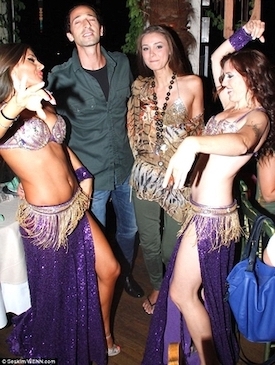| Middle East Forum President Daniel Pipes |
Israel Today: It took 7.88 Turkish lira to purchase one U.S. dollar a year ago; today it requires 11.65; that’s a decline of 48 percent. What caused this collapse, where is it going, and what significance does it have?
Daniel Pipes: The decay of the Turkish currency results from to two policies pursued by Recep Tayyip Erdoğan, the Turkish strongman. First, he rules despotically, whimsically, and unpredictably. As a result, the foreign direct investment that lifted the economy during the first half of his 19-year rule dried up. Second, he insists on the nutty idea of responding to high inflation with low interest rates, causing inflation to soar and the currency to crater. (This bias probably results at least in part from the Islamic condemnation of any interest on money.)
| “Erdoğan … rules despotically, whimsically, and unpredictably.” |
The decline of the Turkish lira is going faster than ever. At least one economist, David P. Goldman, concludes from the current situation that “Turkey faces hyperinflation.” If so, this will not be the first time; twenty years ago, a taxi ride cost millions of lira. In 2005, the government lopped six zeroes off the currency, turning a million old Turkish lira into one new one.
 The Turkish lira’s decline in value compared to the U.S. dollar over the past year. The Turkish lira’s decline in value compared to the U.S. dollar over the past year. |
Protests have just begun; disaster looms. As I wrote two years ago in the Wall Street Journal, Erdoğan’s “continued rule could bring to Turkey the political repression, economic collapse, hunger and mass emigration that plague Nicolás Maduro’s Venezuela.”
IT: Analysts devote much attention to Erdoğan’s popularity ahead of the elections to be called by June 2023. What is your take?
| “Regardless of the vote [in 2023], Erdoğan will remain in power.” |
DP: Regardless of the vote, Erdoğan will remain in power. Count the reasons he won’t go: he has an unfinished agenda, he believes himself indispensable, and he and his team fear jail. I suggest ignoring the hoopla about forthcoming elections; poll numbers, party alliances, and messaging hardly matter because, as in Russia or Syria, we perfectly know the results in advance.
IT: Erdoğan and the ruling Justice and Development Party (AKP) are Islamizing Turkey in terms of laws, education, and symbolism such as the Hagia Sophia; what future in Turkey has their version of Islam?
 Belly dancers and Western celebrities at Istanbul’s Arabesque nightclub cast doubt on the younger generation’s piety. Belly dancers and Western celebrities at Istanbul’s Arabesque nightclub cast doubt on the younger generation’s piety. |
DP: Erdoğan in 2014 famously declared his ambition to raise a “pious generation” of Turks. But that has not happened. Instead – as usually happens when governments shove a state religion down its subjects’ throats (see Iran) – Islam as a whole and Islamism in particular have weakened. A Konda survey found atheists tripling from 1 to 3 percent between 2008 and 2018, even as non-believers doubled from 1 to 2 percent in that same period. A 2012 WIN/Gallupsurvey found “not religious” persons numbering 73 percent in Turkey.
IT: Turning to foreign policy, might Ankara abandon the Muslim Brotherhood to reconcile with Cairo and Abu Dhabi, both of which consider the Muslim Brotherhood a terrorist group?
DP: Recent moves suggest that Erdoğan wishes to improve Turkey’s hostile relations with both Egypt and the United Arab Emirates, and this requires cooling his support for the Muslim Brotherhood. But anyone who follows the Turkish dictator knows that he changes policies quickly and radically, so this tactical shift says little about his long-term intentions.
IT: How do you see Turkish relations with Iran?
| Turkey and Iran “agree on a world outlook, but each wants to dominate the umma.” |
DP: Unique in Middle East diplomacy, these go back hundreds of years. They are complex, perpetually mixing cooperation and competition. Both regimes are Islamist but one is Sunni and the other Shi’i. They agree on a world outlook but each wants to dominate the umma. As Soner Cagaptay puts it, “In the Middle East, there is room for one shah or sultan, but not a shah and a sultan. Ankara and Tehran appear locked, once again, in their centuries-old competition to become the region’s dominant power.”
IT: Erdoğan alternately normalizes relations with Israel and verbally attacks it. What is going on?
DP: He seems genuinely to despise the Jewish state but he also needs decent relations with it, leading to sudden and drastic changes. But a bedrock animosity towards Jews and Zionism means relations with Israel grow steadily worse over time.
IT: And relations with the United States?
DP: Erdoğan seems to despise America less than Israel but not by much. He also needs the United States, leading to contradictory policies, such as purchasing a major Russian weapon system while simultaneously seeking the protective embrace of NATO. While Erdoğan rose brilliantly from nowhere to dominate Turkish domestic politics for nearly two decades, he shows distinctly less competence in foreign affairs.
https://www.meforum.org/62805/pipes-on-turkey-economic-collapse-political-repression




